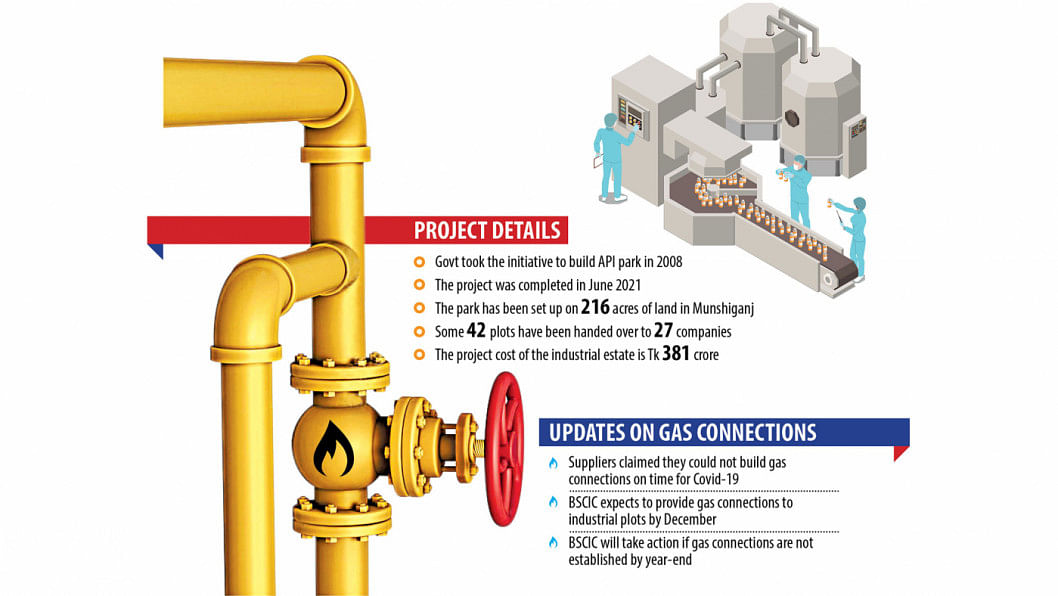Pharma ingredients park: Project complete, still no gas connections

The lack of gas connections is creating obstacles for companies at the API Industrial Park to conduct their operations even though the project was completed in June last year.
So far, 42 plots have been handed over to 24 pharmaceutical companies but only five or six factories have been fully established.
In 2008, the government took an initiative involving Tk 213 crore to build an industrial park beside the Dhaka-Chattogram Highway in Gazaria upazila of Munshiganj for the makers of active pharmaceutical ingredients (API) and other medical raw materials.
Titas Gas Transmission and Distribution Company Ltd was supposed to provide plots inside the park with gas connections by December this year, said Project Director Syed Shahidul Islam.
"Necessary action will be taken against the company if it fails to complete the task within the deadline," he added.
The cost of the project rose to Tk 381 crore due to various reasons, including changes in design and delays in land filling, according to data from the Bangladesh Small and Cottage Industries Corporation (BSCIC).
"The Covid-19 pandemic also disturbed the establishing of gas connections for the API park," Islam said.
The local pharma sector will lose some of the benefits it is enjoying under the Intellectual Property and Patents Act when Bangladesh graduates to a developing country in 2026, said Industries Secretary Zakia Sultana.
So, the government is implementing the API Industrial Park project now, which will play an important role in addressing the challenges the pharma sector will face after the country's economic graduation, she added.
She was speaking during a visit to the industrial park on Saturday.
That day, the Bangladesh Association of Pharmaceutical Industries (BAPI), the apex body for pharmaceutical companies, raised various demands, including starting gas supply to industrial plots, filling the soil and reducing the surcharge.
The BSCIC is hoping to create 25,000 opportunities for direct employment at the API park when all the investors go into operation. The organisation hopes that at least Tk 2,000 crore will be invested in the park.
SM Shafiuzzaman, secretary general of BAPI and managing director of Hudson Pharmaceuticals Ltd, told The Daily Star that companies whose infrastructure development work has been completed will start production only after getting a gas connection.
He said money and all kinds of documents were submitted five years ago for a gas supply but so far, none of the plots have been given connections.
Work is underway to provide internal gas line connectivity but this situation had to be faced due to a lack of coordination in this regard among government agencies, Shafiuzzaman added.
According to the BAPI, local companies can produce only 3 per cent of the total demand for medical raw materials at present while the remaining 97 per cent is imported from various countries.
The pharmaceutical industry has developed considerably in Bangladesh. In the post-independence period, Bangladesh was almost 100 per cent dependent on foreign medicines. But now, local medicines are even being exported across the world.

 For all latest news, follow The Daily Star's Google News channel.
For all latest news, follow The Daily Star's Google News channel. 








Comments